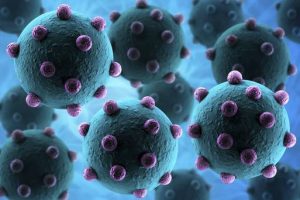Personalised treatment
Personalised medical treatment has matured to integrate into biopharmaceutical drug development pathways. This type of treatment targets patient/s with a specific drug that matches the specific disease physiopathology and/or patient characteristics e.g. genomic profile, and disease prevalence/severity. Personalised medicine has been generally developed in niche indications or conditions with high unmet need.
Cell therapy, transplantation and the HLA matching
Cell therapy uses cellular entities as prophylactic or therapeutic drugs/treatments. An ancestor of today’s cell therapy is transplanting hematopoietic stem cells to reset immune systems after intensive leukaemia chemotherapy. Treatment personalisation is essential to match the graft to the recipient(HLA matching) – without it there might be ‘immunogenicity’ – a graft rejection due to an immune response from the recipient, or‘graft versus host disease’ -an immune response from the graft leading to severe inflammatory syndromes. Using autologous cells is an efficient approach to avoiding this issue. Indeed, because each patient receives its own product from its own cells; personalised cell therapy represents the highest level of patient stratification.
Personalised cell therapy
Today, personalised cell therapy comprises a broad range of products dedicated to treat conditions ranging from oncology to autoimmunity and from cardiovascular to neurologic diseases. T lymphocytes, hematopoietic, mesenchymal, dendritic cells and tissue stem cells have been used in clinical trials for years, harvested from the patient’s own tissues, manipulated and/or expanded and then reinjected. Examples of cell therapies resembling autologous transplantation include Tigenix Chondrocelect, knee cartilage regeneration with tissue-derived chondrocytes, approved in 2009 in Europe and Chiesi Pharmaceutical’s Holoclar for limbal stem cell replacement.
T cell recognition of its target involves HLA matching.Also, the dendritic cell immunologic function is highly dependant on HLA molecules. As a consequence, using autologous cells is mandatory for dendritic cells and T lymphocytes..For T-lymphocyte based products developed to treat cancer, the use of TIL (tumour-infiltrating lymphocytes) brings another degree of personalisation.In these cases, T cells are extracted from the patient’s own tumour tissue, further expanded and then reinjected. Thus, these TILs are highly specific for the patient’s tumour antigens.

A third degree of personalisation has been recently developed with T cell clones specific to a patient’s specific mutation of a tumour antigen. Also, different T cell subpopulations have been used with effector T cells for cancer and T regulatory cells in inflammation and autoimmunity such as Ovasave®, the Treg cell based product developed by TxCell for the treatment of Crohn’s disease.
Today, more than 70 clinical trials are ongoing with autologous T cells and more than 30 with autologous dendritic cell technologies, mostly in cancer and infectious diseases, some at phase II and III and multi-continental level – for example, Cell Medica’s Anti-infectious T cell development, the Lion Biotechnologies SIC based product development and the Dendritic cells products developments led by Argos, Prima Biomed or Immunocellular Therapeutics.
A new emerging area for cell engineering
The latest major evolution of personalized cell therapy is the rebirth of genetic modifications of cellular products. These strategies have been used in immune deficiency syndromes by correcting genetic defects by resetting the immune system using genetically modified autologous hematopoietic stem cell transplants. However, severe adverse events in treated patients slowed down the overall clinical development of these approaches.
Genetic modification personalised cell therapy has become a hot topic. Cell-based product engineering consists of three major arms. The first is introducing effector genes into autologous products. The second is engineering high affinity T cell receptor (TCR) in patient’s T cells. The third is the targeting of T cells through introducing a chimeric antigen receptor (CAR), to link with antigens in their native forms at the cell’s surface. CAR-T cells can thus target any surface proteins,B-cell molecules CD19 being today the preferred target in early stage clinical trials in leukemia.
The CAR-T cell space is rapidly increasing with new investments, deals and clinical results from companies including Novartis, Celgene, Juno Therapeutics or Kite Pharma. Early stage results with CAR-T cells in leukemia showed unprecedented complete response results in leukaemia, leading now to trials in solid tumours.
This new area will transform the whole personalised cell therapy field. First product filings for marketing authorisation are expected for 2016 in life threatening diseases and in patients with no therapeutic strategies. End 2014, 43 clinical trials with engineered T cells were ongoing, mostly in cancer.
In addition, introduction of a CAR into a T cell renders the cell therapy product HLA independent and thus away from personalised treatment,autologous cell use still ensuring the absence of “cellular graft” rejections.
Future direction
Several marketed personalised cell therapy products have already reached phase III studies. On the other hand, products represented by engineering cells will evolve rapidly, bringing new therapeutic solutions to patients in need.
The potential of cell therapy has been recognised by several governments to reinforce national industrialisation and technology advances. Cell Therapy Catapult, a UK government entity, aims at accelerating commercialisation and industrialisation of cell therapies. The Japanese government also recently modified national regulatory rules with an accelerated cell therapy approval.
Whilst most personalised cell therapy is focused on oncology, TxCell is leading the way in infectious diseases and inflammatory conditions with a regulatory T cell based product platform targeting a broad range of diseases. Lead product Ovasave® is already in a European phase IIb clinical study for the treatment of Crohn’s disease. In addition, regulatory T cell based products (compared to effector T cells) have not yet been manipulated with engineering tools. This opens new avenues for their clinical use.
The strength of genetic modifications of therapeutic cells using genome editing and effector gene transduction offers an exceptional range of possibilities for product development. Combining these therapies with biologics or with small molecules will further improve therapeutic activity in patients. With investments by a vast community of stakeholders in innovative healthcare including Big Pharma, personalised cell therapy will undoubtedly continue to raise a high level of expectations to eventually become a standard of care.

